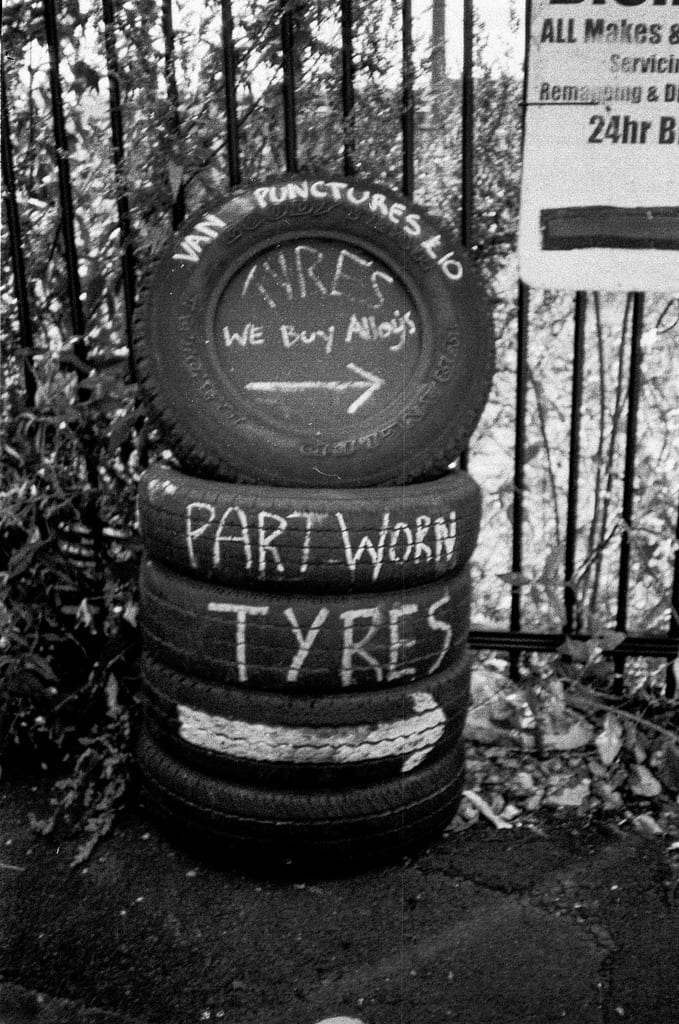11 March 2019 – Another week brings news of yet another serious accident relating to the use of part-worn and used tyres on our roads. It’s a booming business with an estimated 5.5 million part-worn tyres purchased each year in the UK. But while the short-term savings on part-worn tyres may seem appealing there’s a lot more to consider, such as the safety and legality of using them.
Dr Debra Williams, CEO and Founder of Motokiki, is here to tell you all you need to know about part-worn tyres and the potential risks they bring.
- What are part-worn tyres?
Part-worn tyres are second-hand tyres often sold cheaply at garages and tyre centres, and have often seen significant use.
- Is it legal to buy or sell part-worn tyres in the UK?
It is legal to both buy and sell part-worn tyres as long as they meet the requirements under The Motor Vehicle Tyres (Safety) Regulations 1994. These requirements specify that:
- The structural integrity of the tyre must not be compromised.
- The tyre should be free of large cuts, bulges or lumps both internally and externally.
- No plies or cords should be exposed.
- Tyres must pass an inflation test prior to sale.
- The original grooves must still be clearly visible in their entirety and must be to a depth of at least 2mm across the full breadth of the tread, around its entire circumference.
- Part worn tyres which have not been re-treaded must clearly show the relevant ‘E’ mark alongside which ‘PART-WORN’ must be permanently and legibly applied in letters at least 4mm high. These words cannot be hot branded or cut into the tyre.
- ……and finally, the tyre tread depth must be at least 1.6mm.
- What are the main drawbacks to buying part worn/used tyres?
The most serious concern when it comes to part-worn tyres is the safety of you and other motorists on the road. Industry experts agree that 1.6mm tread depth is insufficient to guarantee safety, as a tread depth of 1.6mm means that your tyre is more than 95% worn.
Tyres are the only part of your car with continued contact to the road and should never be an afterthought. An estimated 40 per cent of vehicle defect-related deaths in the UK are due to tyre related deficiencies, so it really is a case of buyer-beware.
Another major concern to keep in mind is the average brake distance between cars with new tyres versus cars with part-worn tyres.
If you were to travel 30mph on a wet road with new tyres featuring 8mm of tread, you would be able to come to a complete stop in approximately 30 metres. The same car, travelling at the same speed in similar conditions will see this stopping distance dramatically increased to approximately 43 metres.
- How can drivers make sure the seller of part worn/used tyres are operating within the law?
As with any purchase, it is vital to thoroughly check the tyre(s) you are buying – particularly if you are relying on them to keep you safe on the roads. Ask the garage for assurances that the tyres are legal and ask to inspect the tyres for any obvious damage which will affect its safety and stopping performance.
If you are in any doubt about the quality or physical state of the tyre, walk away. As the saying goes, better safe than sorry.
- How can drivers check that the part worn/used tyres they buy are roadworthy & legal?
While the onus should be on the seller to ensure that part-worn or used tyres are roadworthy and legal, the UK used tyre market is falling well short of what is expected of it.
A recent investigation by Tyre Safe into the part-worn tyre industry highlighted that a staggering 90 per cent of tyre sellers were fitting illegal and unsafe tyres. The reality is that these tyres are unsafe to use and carry the risk of causing death on the roads, especially in wet weather or icy conditions.
- What are the fines for driving cars with illegal part-worn tyres?
The fines for using illegal part-work tyres are eye-watering. Drivers can be fined up to £2,500 per tyre if the tread depth is less than 1.6mm and given three penalty points.
This means that a driver with four part-worn tyres that do not meet the minimum requirements could be fined up to £10,000 and immediately lose their licence.
Help keep news FREE for our readers
Supporting your local community newspaper/online news outlet is crucial now more than ever. If you believe in independent journalism, then consider making a valuable contribution by making a one-time or monthly donation. We operate in rural areas where providing unbiased news can be challenging. Read More About Supporting The West Wales Chronicle























